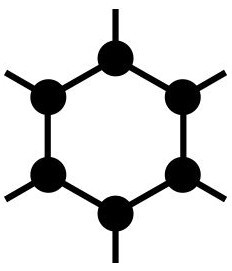It is always better to admit when you don’t know something, than to make up bullshit. Always.
certainly none. its like learning things wrong is horrible as its way harder to correct yourself than learn it the first time. Similarly the more you lie or spread mistruth the harder it will be to discern truth yourself.
Depends.
Your fellows? None at all.
The State? MisinformationThe State? Misinformation
And that’s how you get Republicans saying that Haitians are eating pets in Ohio.
Yeah it was the pets eating ohioans but they failed to fix that news
The Republicans who spread that rumor didn’t care whether it was true, and was looking for choice rumors to spread.
It’s blood libel for the 21st century.
If you lie, you loose people trust. It’s extremely difficult to gain that trust back (maybe even impossible sometimes)
Let me rephrase that: Is it better to lie or say nothing at all?
Oh man I feel this when people ask for directions. Because I know how to get somewhere, but I also forget a lot of steps along the way.
to give misinformation
In Texas, this is called lying… when did we stop using common sense nomenclature?
Kinda feel like leadership of Texas is pioneering the effort to see how far away from that nomenclature your actions can get.
deleted by creator
lying is fun, you can say whatever you want! i recommend you all try it out in moderation
Reason: Rule 1
Nothing wrong with saying “I don’t know”.
May I ask for some context to that question?
I mean, the answer should be obvious to anyone with an ounce of (self)respect: stay shut if you know… you don’t know. But maybe you were thinking about some very specific situation?
None.
When a man lies he murders some part of the world.
– Merlin (Excalibur, 1981)
If you know something to be false and try to pass it off as truth, that is lying. It doesn’t matter how you phrase it or try to hide behind symantics like “I’m just asking questions” or “it’s just a hypothetical”.
That being said, it does not mean that you cannot contribute to a conversations if you are not an authority on a subject. If you are not sure or cannot recall a credible source for your information you can preface your comment with something like “I never confirmed the validity of this, so I may be completely wrong, but…”.
Or just ask questions instead of trying to chime in. If you’re unfamiliar with a subject then you should be listening, not talking.
So true. If you are lacking knowledge on a topic, asking questions is always the best approach.
That is situational. Preferably people don’t lie. However, nuance can make it inevitable.
I once watched an anime called Usagi Drop. In it, the oldest member in an enormous family, who was in his eighties, ends up, ahem, “going around”, and he dies having fathered a girl, who, in the big picture of the family’s family tree, is the great aunt of several of the characters who are well into adulthood. Japan is a nation that considers such matters highly controversial and stigmatized, and this was a major plot point in the show. The young adult characters decide it’s best to “adopt” her and not reveal her origins as a form of protection. Would totally recommend the anime nevertheless.
Can you imagine if the Allies were fighting the Axis powers, and while making the ghost army, the Allies were like “yeah, those tanks are inflatables, it’s Normandy we’ll be going after”?
If you know it’s false, it’s called disinformation.
I think the state in this case needs to be divided into adversarial and non-adversarial departments (or subdepartments). It’s better to tell (for example) the water department you don’t know whether the pipes are lead if that’s the case, rather than forcing them to unearth copper pipes or letting them leave lead pipes.
But it is absolutely appropriate (assuming you believe in strong rights to privacy) to insert NSA keywords into benign communications, so that NSA wastes time on your false positives, but that’s because NSA isn’t supposed to be doing mass surveillance of the public, rather is supposed to be helping develop communication security that is impervious to surveillance.
If your local precinct actually works with the community, doesn’t harass minorities and doesn’t rob civilians via asset forfeiture, it might be worth giving them sound information (including saying you don’t know what you don’t know.) On the other hand if it behaves typically for law enforcement in the US, leading them to chase geese will save everyone else trouble.
No information is the best option. How bad the misinformation is depends on intent. Is the misinformation a lie intentionally told to conceal a truth? Or is it bullshit, information intended to persuade regardless of truth?
Someone who lies and someone who tells the truth are playing on opposite sides, so to speak, in the same game. Each responds to the facts as he understands them, although the response of the one is guided by the authority of the truth, while the response of the other defies that authority and refuses to meet its demands. The bullshitter ignores these demands altogether. He does not reject the authority of the truth, as the liar does, and oppose himself to it. He pays no attention to it at all. By virtue of this, bullshit is a greater enemy of the truth than lies are.
From Harry Frankfurt’s essay On Bullshit











